Kitchen Countertops
Kitchen Countertops Doylestown, PA
With exposure to heat, sharp knives, liquids and more, countertops carry a heavy burden in the kitchen. What’s the right one for you? Discover the pros and cons of some popular countertop material to help you make the right choice.
1. Quartz
Quartz, or “engineered stone” countertops, are manmade surfaces created from chunks of stone mixed with resins and coloring to produce countertops that range from solid colors to the look of real granite. When you go shopping for quartz countertops, you’ll find options to fit any design and the color scheme you’re planning.
Advantages
- Quartz is non-porous, so it’s resistant to staining and bacteria
- Quartz doesn’t need to be sealed while natural stone does
- It’s scratch and chip resistant
- Easy to clean with a damp cloth (and mild cleaner, if necessary)
Disadvantages
- Not as resistant to heat as concrete or granite; you’ll need to keep a hot pad or trivet nearby for pots and pans right off the burner or out of the oven – which you should do for any counter top
- Doesn’t have the natural look as stone, since it is engineered
- Pattern and color options are limited to the availability provided by the manufacturing process while other countertops made from natural stone can offer virtually every color
- Direct sunlight over an extended period of time can cause fading
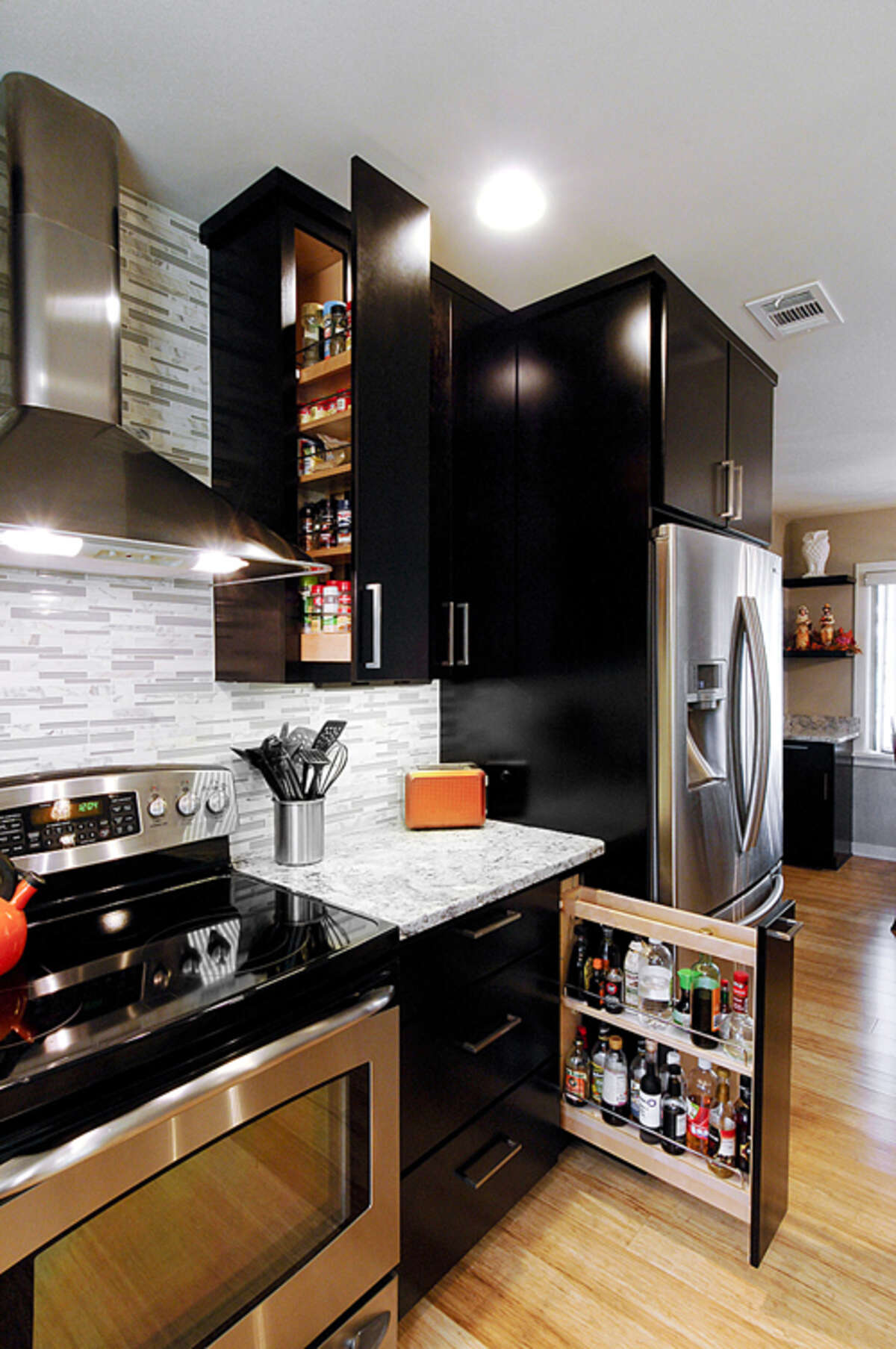
2. Granite
Granite is a natural stone formed by the crystallization of molten rock that undergoes huge amounts of heat and pressure over time. The stone is naturally rough and textured, but when it is ground and polished during the countertop manufacturing process, it takes on a smooth surface with rich luster. With the care and maintenance required, granite will deliver the look and performance you want for decades to come.
Advantages
- Granite resists cracks and chips
- Good stain resistance and easy to clean when you apply sealer annually
- Among the most beautiful countertop materials
- Natural stone for those who want an ecofriendly counter top
Disadvantages
- Corners may chip or break if a heavy object falls on them
- Improper sealing or failure to reseal granite when needed can lead to staining
- Poorly sealed granite may also harbor bacteria
- Natural variations in stone can result in countertops that don’t look exactly like the sample
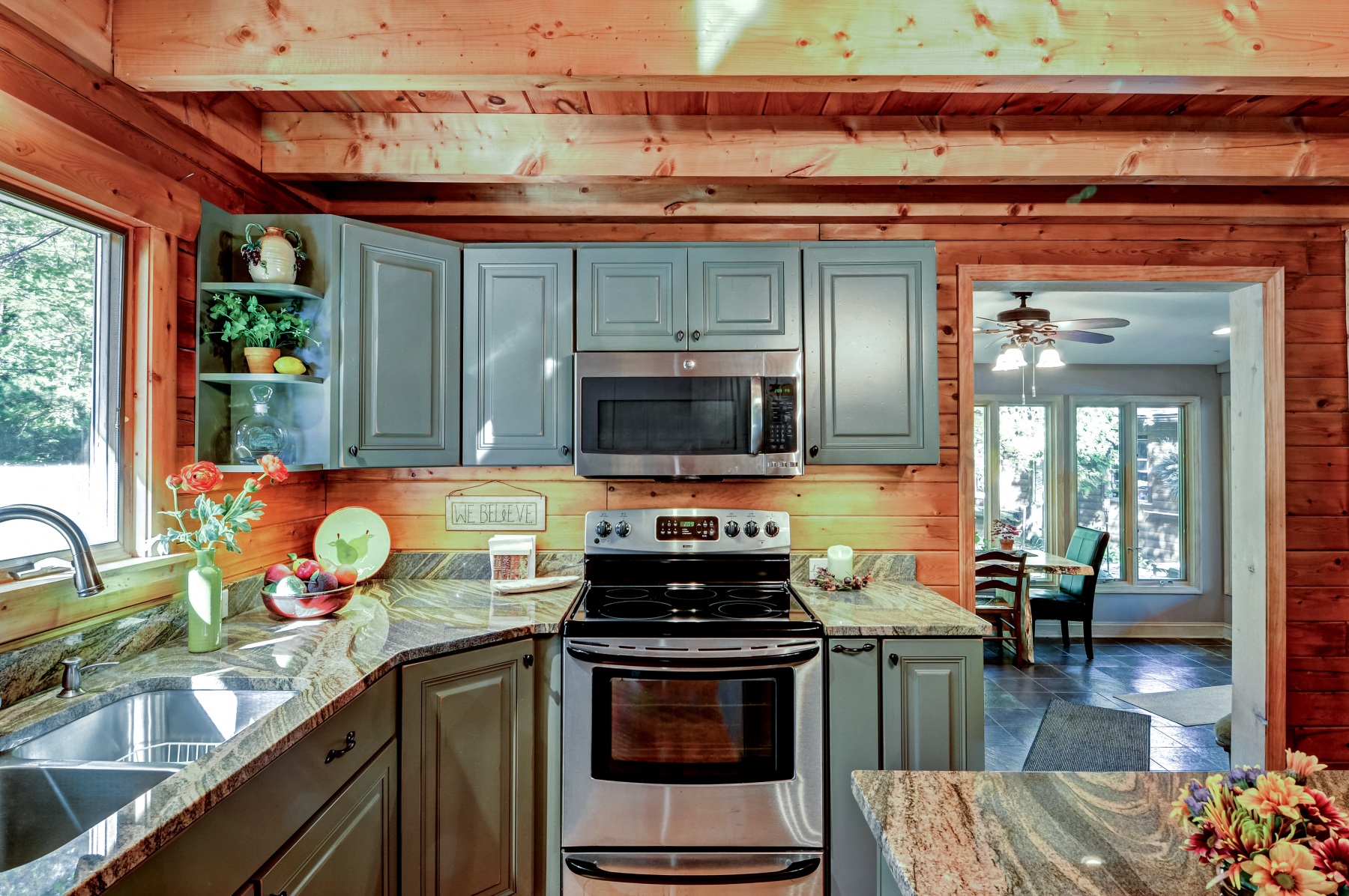
3. Laminate
Laminate countertops remain a very popular option for many kitchens because they are affordable and come in the widest possible range of colors and patterns. Laminate countertops contain a hard particle board core with layers of plastic laminate bonded over the top of it. Many are made to mimic the look of more expensive surfaces like marble or granite.
Advantages
- Laminates come in the widest selection, with a large palette of colors, hundreds of patterns and designs, and textured surfaces
- Cleaning them is easy. The surface is solid, without pores, so a soapy washcloth or sponge is usually all that is needed
- More budget friendly than any other type of countertop
- It doesn’t need any special sealers or cleaners, and it’s stain resistant
Disadvantages
- Laminate countertops can be more easily scratched than most surfaces so it is best to do any cutting in the kitchen on a cutting board
- Laminate is not as heat resistant as other surfaces so hot pans should not be placed on them
- Allows only drop-insinks due to its construction
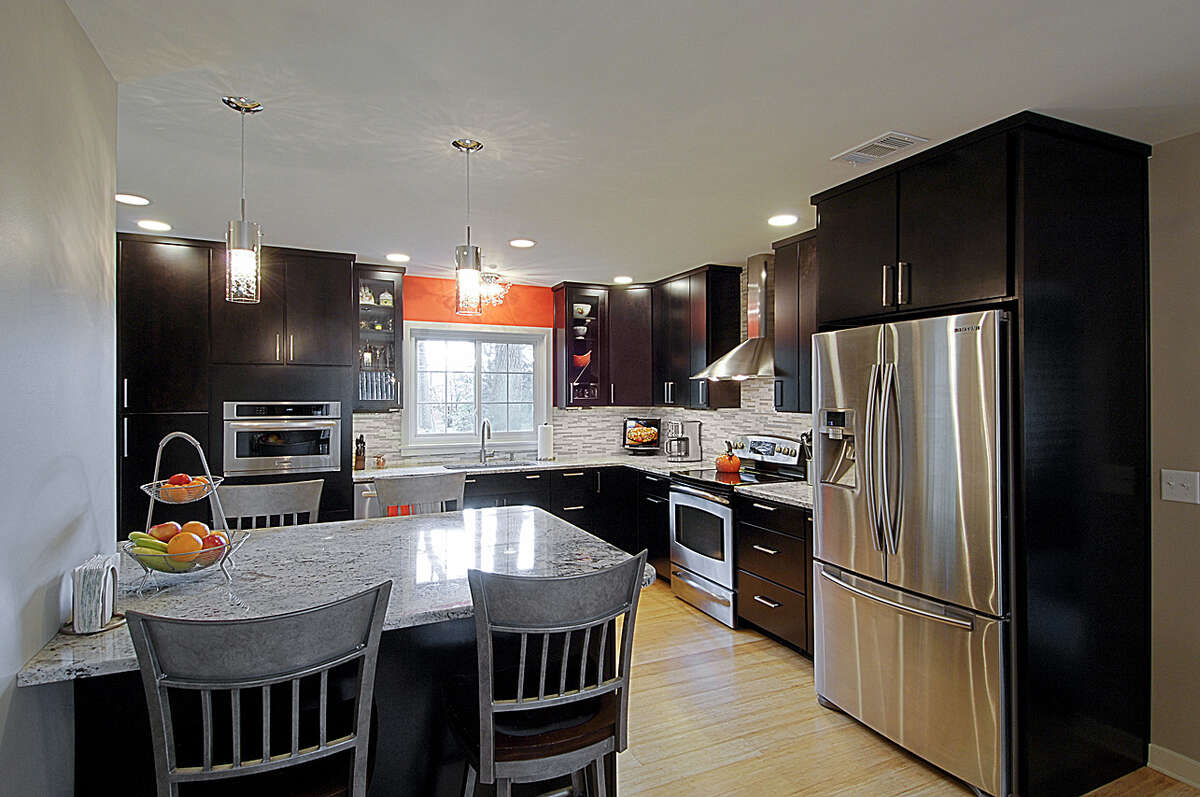
4. Concrete
Concrete countertops are mixed from newer blends of concrete that work well in the home. Concrete is more of a custom material and countertops are often framed and poured right in the kitchen, though many are made offsite as well. Because concrete has a contemporary, somewhat industrial look, concrete countertops offer a modern and clean look in the kitchen.
Advantages
- It is very durable and hard, and not easily chipped
- They can be custom-formed on site to fit even oddly sized or shaped areas
- Concrete can be pigmented to achieve just about any color you want
- They can also be personalized by embedding shells, tiles, pieces of colored glass, or stones.
Disadvantages
- These are expensive countertops – well over the price range of granite or quartz
- They need to be sealed regularly in order to make the surfaces easier to clean. Even then, they are susceptible to being stained by coffee or juice.
- Putting a lot of weight on a corner may cause them to crack.
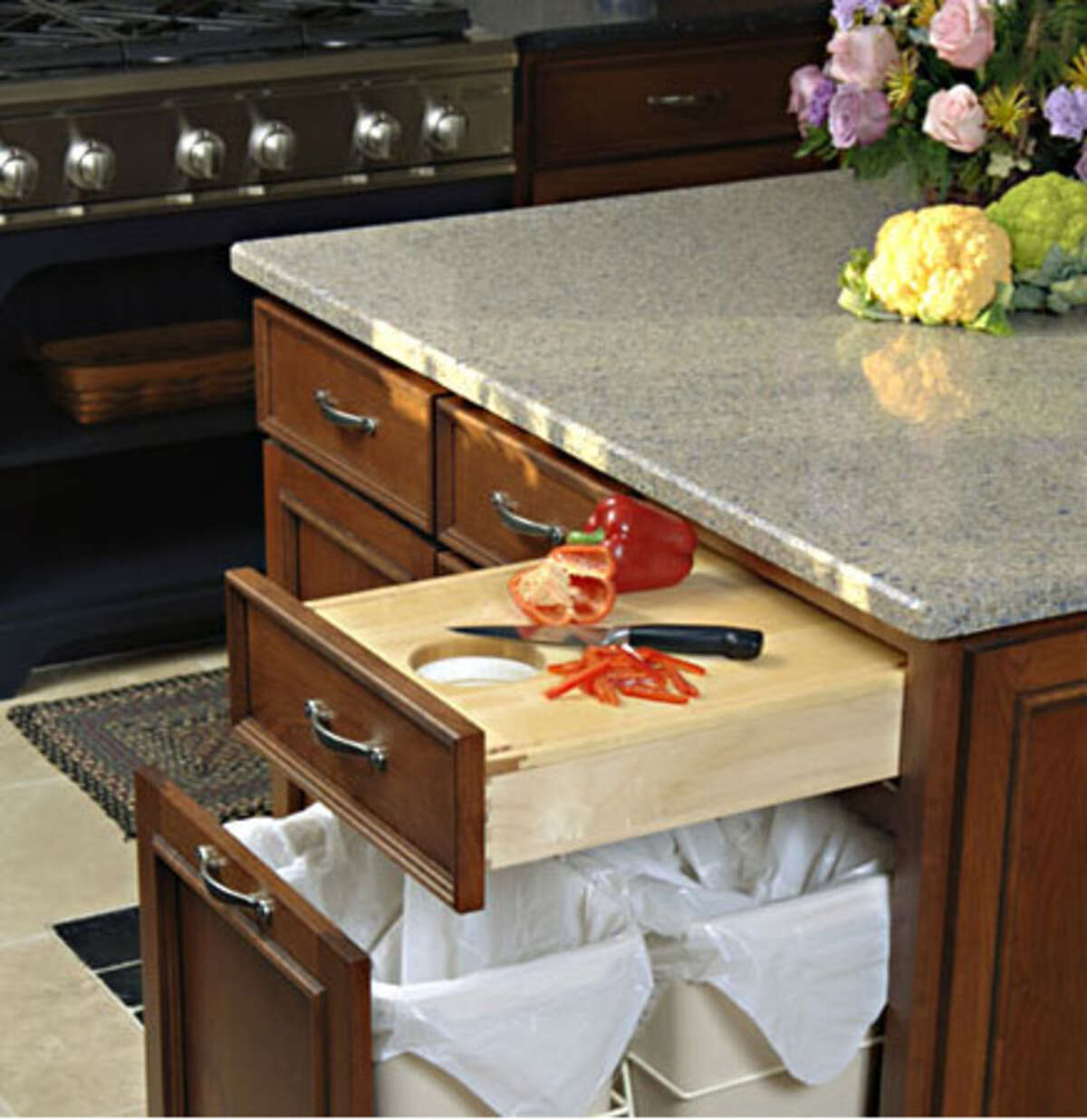
5. Solid-Surfacing
The best known brand is Corian, but there are numerous manufacturers of solid-surface countertops. They are made from solid synthetic material, such as acrylic, polyester resins, and even marble dust. If you want to choose from a large variety of patterns and colors but want something of higher quality and better durability than laminate, take a look at solid surface countertops. They offer good quality yet lower prices than stone or quartz.
Advantages
- Very easy to clean and maintain, and don’t require special sealers or cleaners
- Scratches are easily sanded out
- Very hard and durable countertops
- Many of the looks are patterned after more expensive materials
Disadvantages
- Not as resistant to heat as stone orquartz
- Can be scratched
- They can be damaged by harsh chemicals such as nail polish or removers, thinner lacquers or oven cleaners
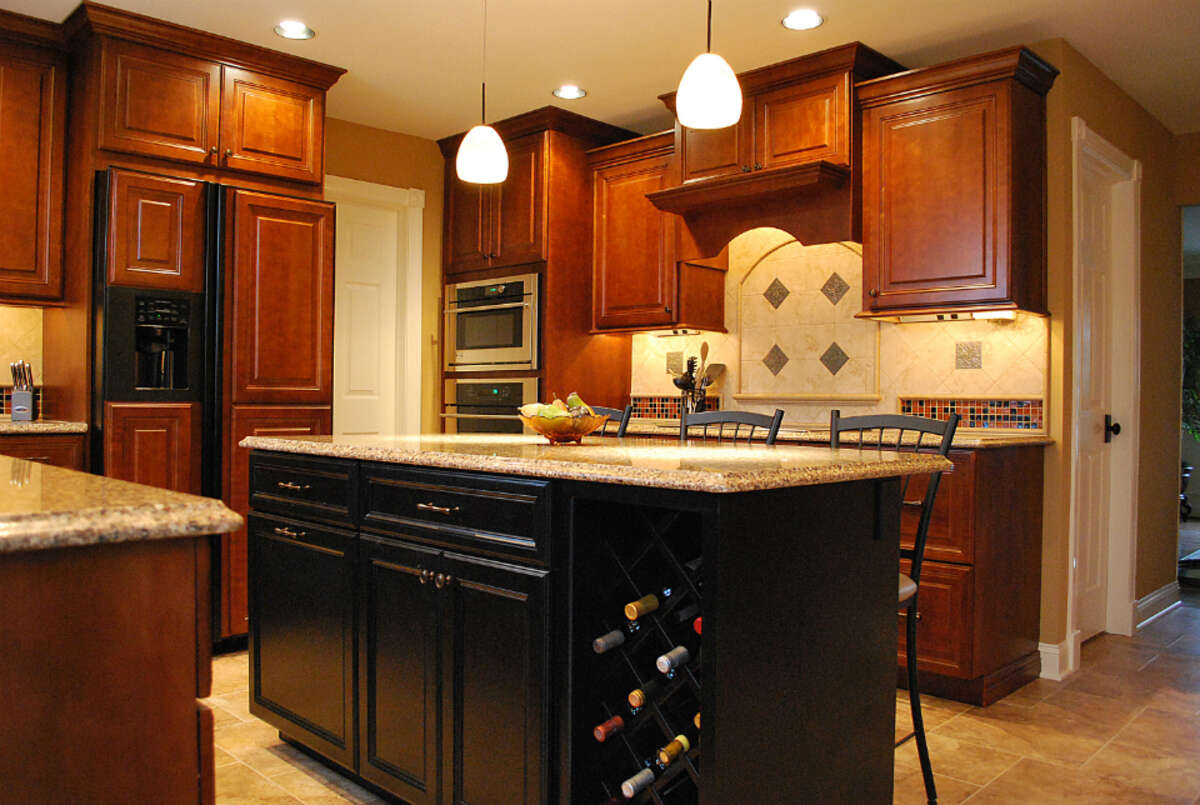
Contact Us
Our designing planning, and attention to detail is what sets us apart at Gehman Design Remodeling; we create positive experiences for homeowners.
Contact our team today. You can reach us at (215) 513-0300 or by using our online contact form.
